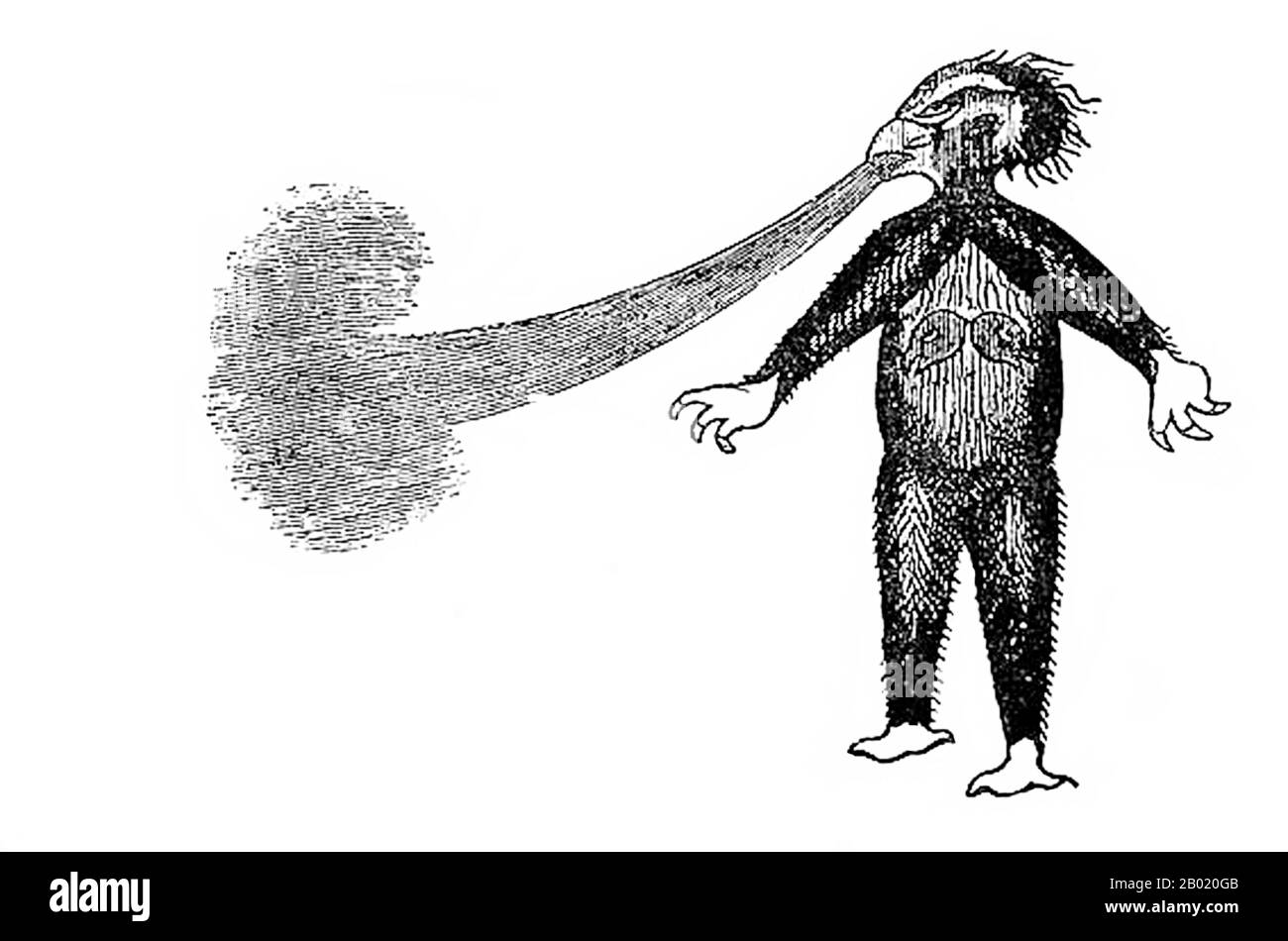In Mandarin, guizi (Chinese: 鬼子; pinyin: guǐzi) can be used to refer to either the Japanese (specifically, 日本鬼子 rìběn guǐzi 'Japanese devil' or 東洋鬼子 dōngyáng guǐzi 'east ocean devil') or to Europeans (洋鬼子 yáng guǐzi " ('foreign devil', ) 'ocean devil'). Laowai (老外 lǎowài 'old foreigner' or 'old outsider') is another term generally used for Europeans, and is a less pejorative term in Mandarin than guizi. Also, cf. Ang Mo (Chinese: 紅毛; pinyin: hóng máo) meaning 'red hair' (Hokkien).

RMID:Image ID:2B020GB
Image details
Contributor:
CPA Media Pte Ltd / Alamy Stock PhotoImage ID:
2B020GBFile size:
47.3 MB (729.4 KB Compressed download)Releases:
Model - no | Property - noDo I need a release?Dimensions:
5000 x 3309 px | 42.3 x 28 cm | 16.7 x 11 inches | 300dpiDate taken:
2 September 2006Photographer:
Pictures From HistoryMore information:
This image could have imperfections as it’s either historical or reportage.